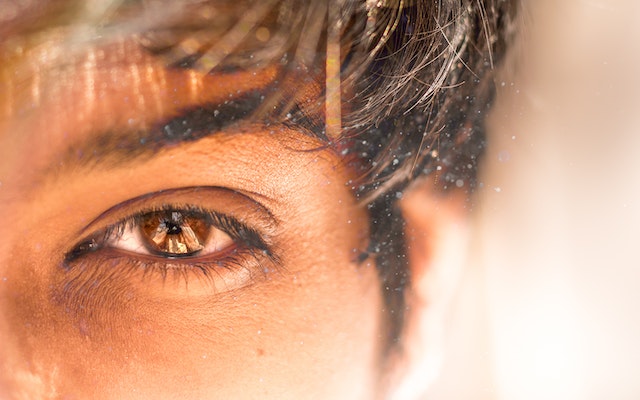
How To Relieve Eye Strain
There have been big advancements in the digital industry over the past few years. This has promoted the use of digital devices for leisure purposes and their use in the workplace.
While individuals above a particular age group previously only used mobile phones, however now this is used by individuals belonging to all age groups. According to a report from 2016 published by the Vision Council, at least two-thirds of the individuals living in the United States who are aged between 30 and 49 years old spend five or more hours on their devices.
The increasing use of digital devices, whether at home or at the workplace, has increased the incidence of eye strain in individuals. Generally, eye strain can be diagnosed by an experienced health professional. Moreover, the treatment of eyestrain may also be done by a number of non-invasive methods, which may include eye massage, cooling, and heating procedures.
Table of Content
What Are The Symptoms Of Eye Strain?
The primary symptom of eye strain is feeling a sense of discomfort. This general feeling of discomfort may be accompanied by slight redness, itching, and watering of the eyes.
Individuals with eye strain also complain of their eyes continuously feeling dry. In addition to eye dryness, a common symptom of eye strain is blurry vision. The individuals mainly complain of blurry vision, which may alternate with clear vision. The alternation between clear and blurry vision interferes with the individual’s ability to concentrate and work for long periods of time. This may be improved with rest.
Another common symptom that individuals with eye strain may report is that the individuals may be very sensitive to light and complain of experiencing glare as well. This keeps the individual from keeping their eyes open and may also lead to frequent headaches and sore neck.
Other than the eye-related symptoms, the individuals may also experience several extraocular symptoms. These may include neck pain, shoulder pain, back aches, and other musculoskeletal problems.
What Causes Eye Strain?
The major cause of eye strain experienced by individuals today is screen time. Individuals who indulge in an hour and hours of screen time, whether it is at home for pleasure or at work, are more likely to have eyestrain. Newer studies now show increasing use of digital screens by children, adults, and elderly populations all over the world. Increasing screen time is the most common cause of eye strain in the world today. While frequent and consistent use of digital screens for several hours a day, other factors may also play a causative role. These include:
- Focusing on an object or a task for long periods of time. Activities that may require this include long drives and reading.
- Being in an environment that is either too dim or too bright. The bright lights can be a cause of stress for the eyes. Similarly, dim lights mean the individual has to make extra efforts to see an object, which also leads to eye strain.
- Feeling tired or stressed
- Having dry eyes due to other reasons- which may include environmental factors and health conditions like xerostomia
- Not blinking as much as an individual is required– which also leads to dryness of the eyes
Ways To Manage Eye Strain
There are a number of ways to manage eye strain, as recommended by experts all over the world.
Eyestrain Caused By Leisure
Since overuse of digital devices is considered among the most common causes of eyestrain, their moderate use is often the most frequent recommendation. This may be achieved by limiting the daily screen time to less than 4 hours. In addition, screen time may be limited by using screen time trackers, which may be available as separate devices or may be incorporated into your phones as well. These trackers encourage an individual to spend less time on their phones or digital devices.
Workplace Associated Eye Strain
While this may not be possible for individuals who are exposed to prolonged screen time in their workplace, individuals who indulge in digital devices for leisure can try to follow these guidelines.
Individuals in the workplace who are required to use digital devices for long periods of time should try to use these in proper lighting. The lighting should neither be too bright nor too low. Being in environments with illumination over 1000 lx can reduce overall performance and lower the individual’s productivity. Similarly, the contrast setting also plays an important role. The contrast setting, considered the most eye-friendly and leads to high productivity, lies between 60% and 70%.
Moreover, with the help of an expert, they should also try to set the image parameters on their screen. This may include screen resolution, text size, contrast, and overall luminance. Taking frequent breaks in between is also important.
The 20-20-20 Rule
The way in which this may be done is by shifting your attention to other things and activities around you every 20 minutes. For example, when you feel like you are getting too exhausted, you may benefit by focusing your attention from the screen to an object that is 20 feet away. You may look at the object for at least 20 seconds before switching your attention back to the screen. This may be repeated whenever you feel your eyes strain again. While switching your attention, following the 20-20-20 rule may be enough; the individual may also benefit by taking a walk outside in nature.
Eye Tech Mask
The SweetNight’s Eye Massager Mask was introduced as a modern solution for individuals with eye strain and eye soreness.
The Bottom Line
The maintenance of eye health from the very start is considered very important in lowering the chances of having vision problems in the future. Hence, in order to ensure this, the individual should get their eyes checked once every year. These eye checks may be even more frequent for individuals who have increased screen time and are more at risk for eye strain. Therefore, preventative measures like taking frequent breaks and limiting screen time, along with recent innovations like eye tech masks, may be amongst the most effective ways to target the issue of eye strain.


